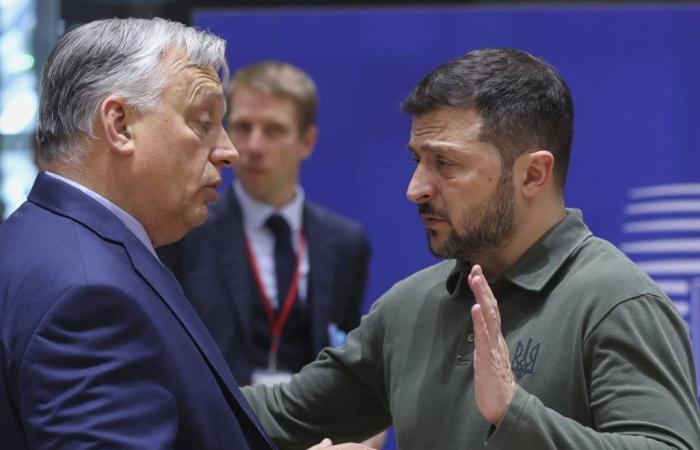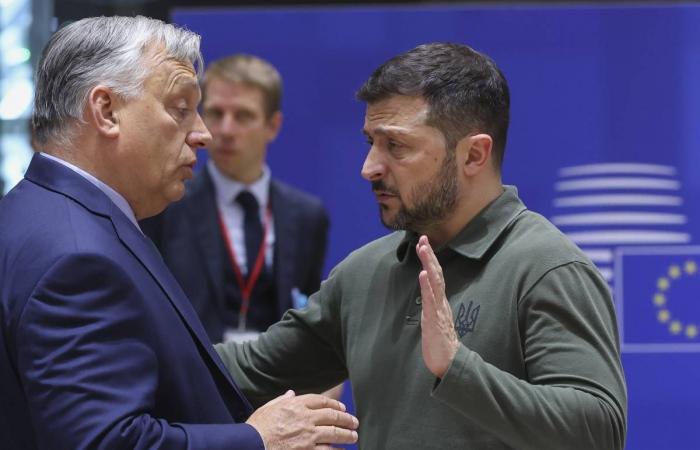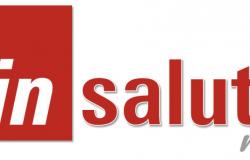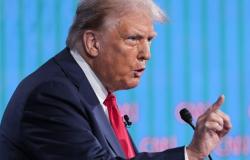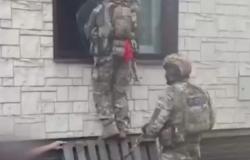Guest of honor in Brussels on the day in which the most important decisions on EU summits were taken after the elections for the renewal of the European Parliament on 9 June. Volodymyr Zelensky’s presence was anything but formal: welcomed with respect by the outgoing leaders of the Union (the President of the European Council Charles Michel told him: «You are at home, we want to support you and we thank you for being here today»), the Ukrainian president has signed an important agreement with the EU as a whole, which commits the Twenty-Seven to guarantee his security while the war unleashed by Russia now 28 months ago shows no signs of abating.
Zelensky had intervened with video messages at previous summits of European heads of state and government, but after the official process for Ukraine’s accession to the EU was launched three days ago, his physical presence in Brussels took on the precise meaning of underlining a new phase in relations with Kiev. The agreement on Ukraine’s security consists of nine points, among which stand out additional military aid, support for the millions of Ukrainian citizens who Russian aggression has turned into refugees, and European cooperation in Kiev’s civil nuclear program.
Military aid is affected by the nefarious role played by Viktor Orbán’s Hungary, which is increasingly openly that of Vladimir Putin’s fifth column in the EU: with his veto, considering that decisions of this type still require unanimity, Orbán can hinder or block the transfer of billions of euros of military aid from the EU budget to Kiev, which is precisely what Putin expects of him. Another thing is to block funds from Russian assets frozen in Europe, over which there is no individual veto power, and whose transfer process to Ukraine has already begun.
Zelensky and Orbán are in irreconcilable positions, so much so that yesterday, when the former arrived at the Europa Building, the video operators of the European Council filmed the scene of a tense confrontation between him and the Hungarian prime minister. But there are also anti-Orbán people in the EU, the main one being certainly the Estonian prime minister Kaja Kallas, whose nomination to lead the foreign policy of the Twenty-seven represents the most explicit possible political message to Putin: the EU chooses the figure who is absolutely the least inclined towards ambiguity and downward compromises towards Russia. This is confirmed by the fact that in addition to the important defense agreement with the EU as a whole, yesterday Zelensky also signed two bilateral agreements with Estonia itself and with Lithuania (in addition to meeting with NATO secretary general Jens Stoltenberg).
All this, however, is happening at a time when the European political front that supports Ukraine must deal with the weakening of French President Emmanuel Macron and more generally with a growth at the European level of extremist movements on the right and left that are openly hostile to Kiev’s cause. Yesterday Zelensky said he was certain that the next government in Paris “will continue to support Ukraine and will remain independent from the Russian aggressor.”
He also announced that he wanted to discuss with European leaders the launch of a second peace summit along the lines of the recent one in Switzerland (which he called “a success”) for “negotiations in the open, not secret.”

